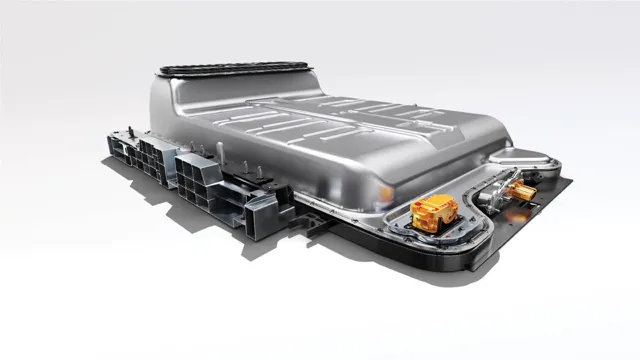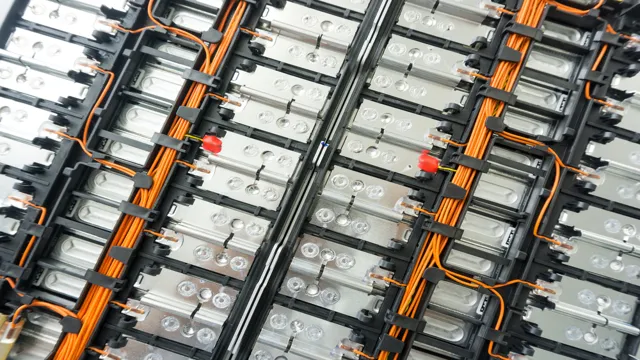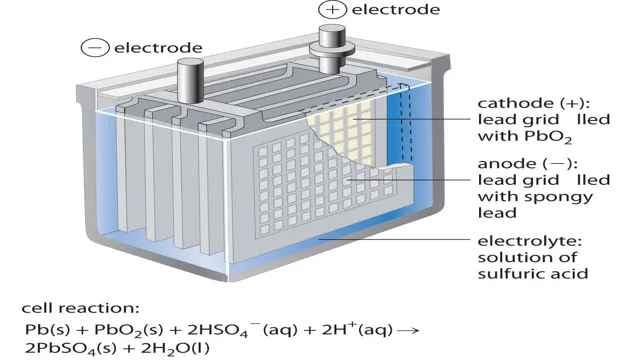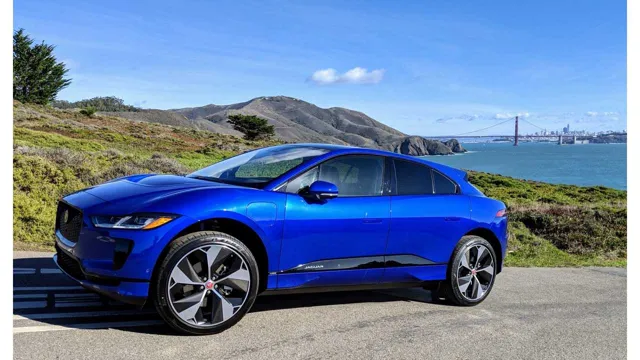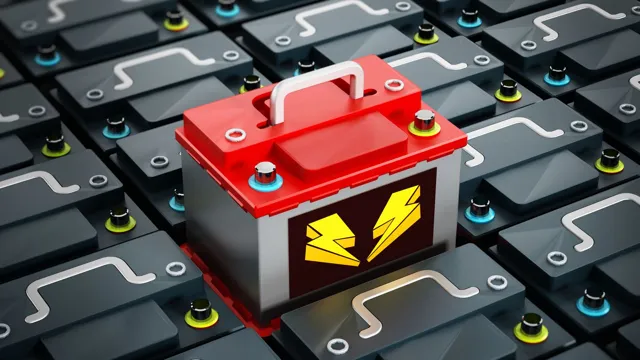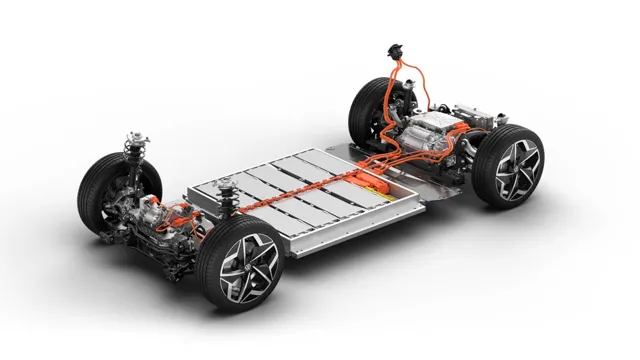Revolutionizing Transportation with Efficient Electric Car Lithium Ion Batteries
Lithium-ion batteries have revolutionized the world of electric cars, and for a good reason. With their superior energy density, these batteries can pack enough power to drive electric cars for miles on end. The days of range anxiety are long gone, and electric car owners can travel for hundreds of miles without worrying about running out of power.
But the power of Lithium-ion batteries goes beyond their energy density; they are also incredibly reliable and cost-effective. With improving technology, manufacturers have been able to improve the battery life of Lithium-ion batteries exponentially, making electric cars more accessible and affordable than ever before. In this blog, we will explore the power of Lithium-ion batteries and how they have changed the face of the automotive industry.
So, fasten your seatbelts, and let’s delve into the world of Lithium-ion batteries for electric cars.
Efficient Energy Storage
Efficient energy storage is an essential aspect of electric vehicles, and lithium-ion batteries are the go-to option due to their high energy density and long lifespan. A lithium-ion battery is made up of several layers of materials, including electrodes, electrolytes, and separators, all of which are designed to maximize the battery’s capacity and efficiency. These batteries are also lightweight and compact, which makes them ideal for use in electric cars, where space is limited.
What’s more, lithium-ion batteries are highly recyclable, which means that the raw materials used in their production can be reused, reducing their environmental impact. Considering the benefits of electric car lithium-ion batteries, it’s no wonder why they have become the popular option for energy storage in the automotive industry.
How lithium-ion batteries work
Lithium-ion batteries have revolutionized the way we store and use energy. They are now an integral part of our lives and are used in almost every electronic device, from smartphones and laptops to electric cars and power banks. But how do they work? The answer lies in their unique chemical makeup.
They are made up of three primary components – a cathode, an anode, and an electrolyte. The cathode and anode are made up of lithium and a different metal oxide, respectively, while the electrolyte is a lithium salt in an organic solvent. When the battery is charged, lithium-ions move from the cathode to the anode, storing energy.
When it is used, these ions move back to the cathode, releasing energy. This movement of ions is made possible through the electrolyte, which acts as a bridge between the cathode and anode. The result is a highly efficient and long-lasting energy storage system that has become the backbone of modern electronics.
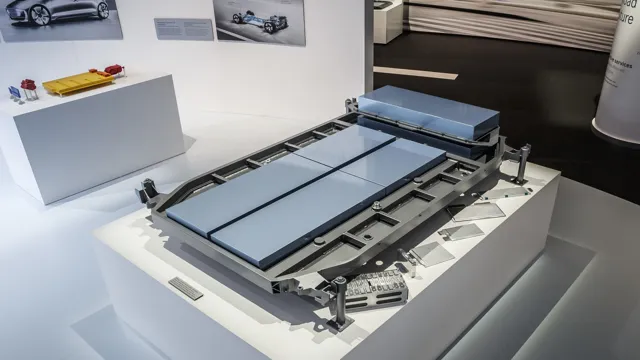
Advantages of using lithium-ion batteries for electric cars
When it comes to powering electric cars, lithium-ion batteries are becoming increasingly popular. One of the main advantages is their efficient energy storage. Unlike traditional lead-acid batteries, which lose their charge quickly and require frequent recharging, lithium-ion batteries can hold a charge for a much longer period of time, providing sustained power to an electric vehicle for hundreds of miles.
Additionally, these batteries are capable of being charged quickly, which means that even if a driver forgets to charge their car overnight, they can still get a significant amount of driving range with just a short charge. Overall, the efficient energy storage provided by lithium-ion batteries is one of the key reasons why they are a popular choice for powering electric cars.
Maximizing Range and Performance
When it comes to electric cars, the lithium ion battery is the backbone of its performance and range. Maximizing the range and performance of electric cars is a top priority of both car manufacturers and electric car owners. The advancements in technology have enabled electric car batteries to become more efficient, lighter, and longer-lasting.
Lithium ion batteries have become the preferred choice due to their energy density and ability to store a lot of energy in a small space. To maximize electric car performance and range, it is important to keep the lithium ion battery properly charged and maintained. Regularly monitoring the battery’s health, avoiding quick charging, and not over-charging the battery can help to extend the lifespan of the battery, increase the driving range, and optimize overall performance.
Additionally, using regenerative braking can help to charge the battery and extend the range of the electric car. The lithium ion battery is undoubtedly the cornerstone of the electric car revolution, and maximizing its potential is the key to unlocking a sustainable automotive future.
Factors affecting lithium-ion battery range
Lithium-ion batteries are an essential component of modern electric vehicles, and maximizing their range and performance is crucial. Several factors affect the range of these batteries, including temperature, speed, driving style, and road conditions. High temperatures can cause the battery to degrade faster, reducing its capacity and overall performance.
Similarly, driving at high speeds or with aggressive acceleration can drain the battery quickly. On the other hand, driving at a steady pace and braking gently can help conserve battery power and extend its range. The kind of terrain and road conditions also play a crucial role in determining a battery’s range.
Uphill climbs or rough roads will require more energy, draining the battery faster than driving on smooth, level roads. Overall, maximizing the range and performance of lithium-ion batteries requires careful consideration of these factors and making adjustments to optimize energy use.
Benefits of using lithium-ion batteries for electric car performance
Lithium-ion batteries are the best option for maximizing range and performance in electric cars. With their high energy density and lightweight design, lithium-ion batteries can store a significant amount of energy in a relatively small space. This means that electric cars powered by lithium-ion batteries can travel longer distances without needing to be recharged.
Additionally, electric cars with lithium-ion batteries can accelerate quickly and maintain a consistent speed, delivering a smooth, reliable driving experience. When compared to traditional lead-acid batteries, lithium-ion batteries offer exceptional efficiency, durability, and higher energy density, making them the preferred choice for electric car manufacturers. So, if you want an electric car that can go the distance, a lithium-ion battery is the way to go.
Comparing lithium-ion batteries to other battery types for electric cars
When it comes to electric cars, the type of battery used plays a significant role in the vehicle’s range and performance. While there are several battery types available, lithium-ion batteries have become the most popular choice in recent years due to their high energy density and long cycle life. Compared to traditional lead-acid batteries, lithium-ion batteries are lighter, have a higher energy density, and can be charged much faster, meaning less downtime for drivers.
Additionally, lithium-ion batteries have a longer lifespan than other battery types, meaning that the battery will retain its capacity for a more extended period, resulting in fewer replacements. Overall, lithium-ion batteries are the best option for electric cars, allowing drivers to maximize their range and performance while minimizing downtime.
Sustainability and Cost-effectiveness
When it comes to sustainable transportation, electric cars are a great alternative to traditional vehicles. One of the key components of electric cars is the lithium ion battery. Not only are these batteries more environmentally friendly than traditional car batteries, but they can also be more cost-effective in the long run.
While the upfront cost of an electric car may be higher than a traditional car, the savings on fuel and maintenance can make up for that over time. Additionally, the cost of lithium ion batteries has been steadily decreasing in recent years, making electric cars even more affordable. With advances in technology, electric cars and their batteries are becoming more efficient and capable of traveling farther distances.
As more people make the switch to electric cars, the demand for lithium ion batteries will only continue to grow, driving down costs even further. So not only are electric cars a more sustainable option, but they can also be a smart financial choice in the long run.
Environmental advantages of using lithium-ion batteries for electric cars
Lithium-ion batteries have become the go-to power source for electric vehicles due to their numerous environmental advantages. One such advantage is sustainability. Unlike traditional gasoline-powered cars that emit harmful pollutants, EVs powered by lithium-ion batteries release zero emissions, making them significantly cleaner and greener.
By switching to these batteries, we can reduce our carbon footprint, reduce greenhouse gas emissions, and improve air quality. Furthermore, lithium-ion batteries have a longer lifespan compared to other battery types, reducing the need for frequent replacements, which helps to conserve natural resources. Another benefit of using lithium-ion batteries is their cost-effectiveness.
Although they’re initially more expensive than traditional batteries, their longer lifespan and higher efficiency eventually result in lower overall costs. Additionally, the increased demand for lithium-ion batteries is driving innovation and development, lowering costs even further. Ultimately, the switch to lithium-ion batteries not only benefits our environment but also our wallets.
Cost comparison of lithium-ion batteries to other electric car battery types
Lithium-ion batteries are becoming increasingly popular in the electric car market due to their sustainability and cost-effectiveness despite being more expensive than other types of batteries. While lead-acid batteries may have a lower upfront cost, they have a shorter lifespan and are less energy-efficient, resulting in higher overall costs in the long run. Nickel-metal hydride batteries are a step up from lead-acid batteries but are still less efficient and more expensive than lithium-ion batteries.
Additionally, lithium-ion batteries have a longer lifespan and can hold more energy, leading to longer travel distances and lower overall costs. Furthermore, as technology continues to advance, the cost of lithium-ion batteries is expected to decrease even further, making them an even more cost-effective option in the future. So, while lithium-ion batteries may be pricier upfront, their sustainability and efficiency make them a smart investment in the long run.
The Future of Electric Cars with Lithium-ion Batteries
The electric car industry has experienced rapid growth over the past few years, largely due to advancements in lithium-ion battery technology. Lithium-ion batteries offer high energy density, long lifespan, and fast charging, making them the preferred choice for electric vehicles. As the demand for electric cars increases, the lithium-ion battery market is expected to grow significantly.
However, there are still some concerns about the environmental impact of lithium-ion batteries, particularly their disposal. It is important to continue research and development of alternative battery technologies to mitigate these concerns and ensure a sustainable future for electric cars. Despite these challenges, electric cars powered by lithium-ion batteries have a bright future ahead, with innovations and advancements making them more efficient and accessible to a wider range of consumers.
Conclusion
In conclusion, the future of transportation is electric, and the lithium-ion battery is leading the charge (pun intended). With its impressive energy density, long lifespan, and minimal environmental impact, the lithium-ion battery is powering a more sustainable future. So, from Teslas to Leafs, from range anxiety to quick charging, the electric vehicle revolution is truly electrifying—thanks to the mighty lithium-ion battery.
“
FAQs
What is a lithium ion battery and how does it relate to electric cars?
A lithium ion battery is a type of rechargeable battery that is commonly used in electric cars. It is known for its high energy density, which allows for longer driving ranges.
How long do lithium ion batteries typically last in an electric car?
The lifespan of a lithium ion battery in an electric car can vary, but they are typically designed to last for several years and many thousands of miles before needing to be replaced.
Can lithium ion batteries in electric cars be recycled?
Yes, lithium ion batteries in electric cars can be recycled. In fact, many automakers and battery manufacturers have established programs to recycle these batteries and recover valuable materials.
Are there any safety concerns related to lithium ion batteries in electric cars?
While lithium ion batteries are generally safe, there have been isolated incidents of battery fires in electric cars. However, advancements in battery technology and safety systems have greatly reduced the risk of such incidents.
